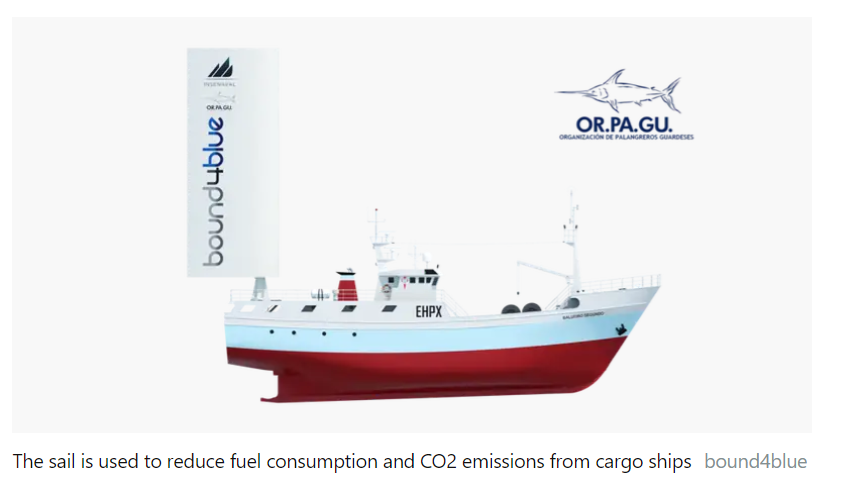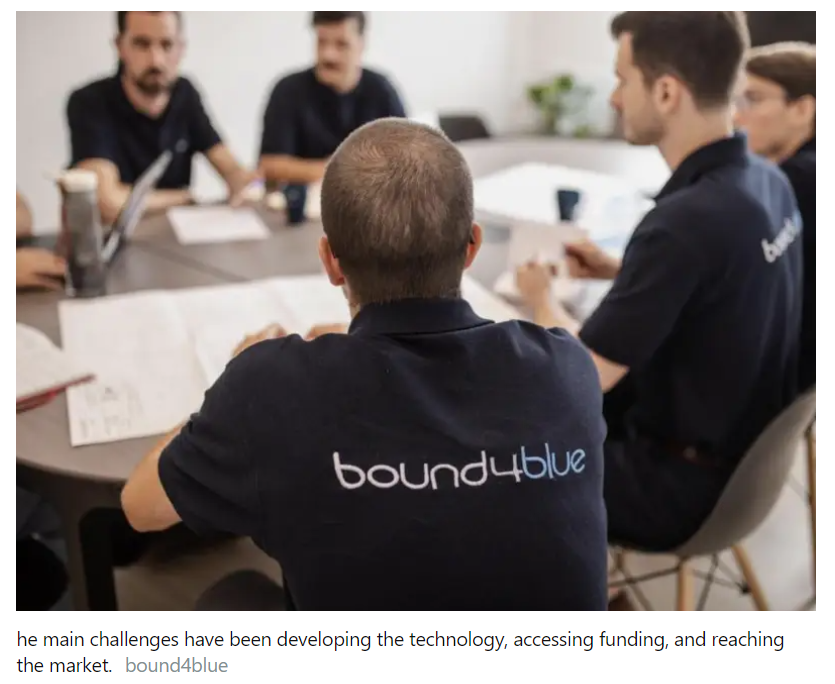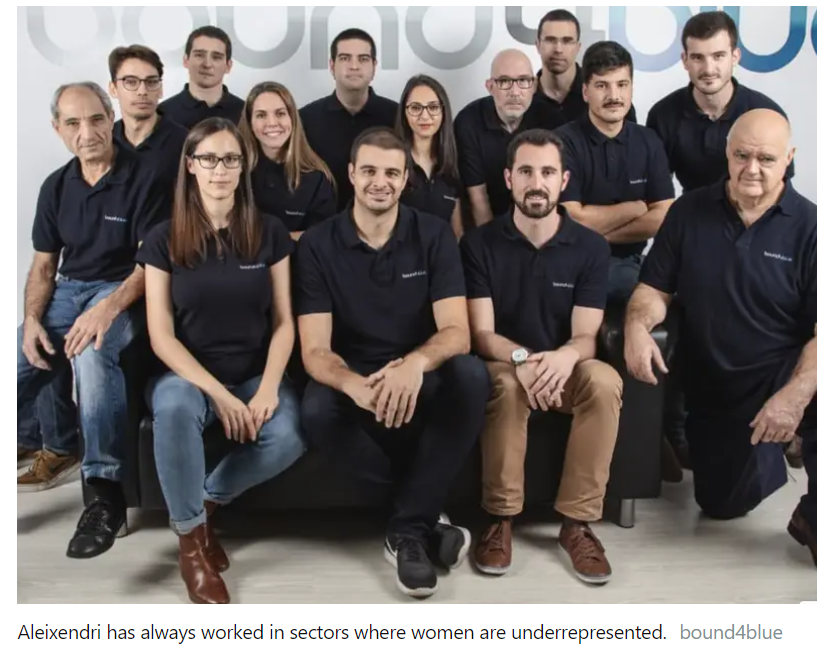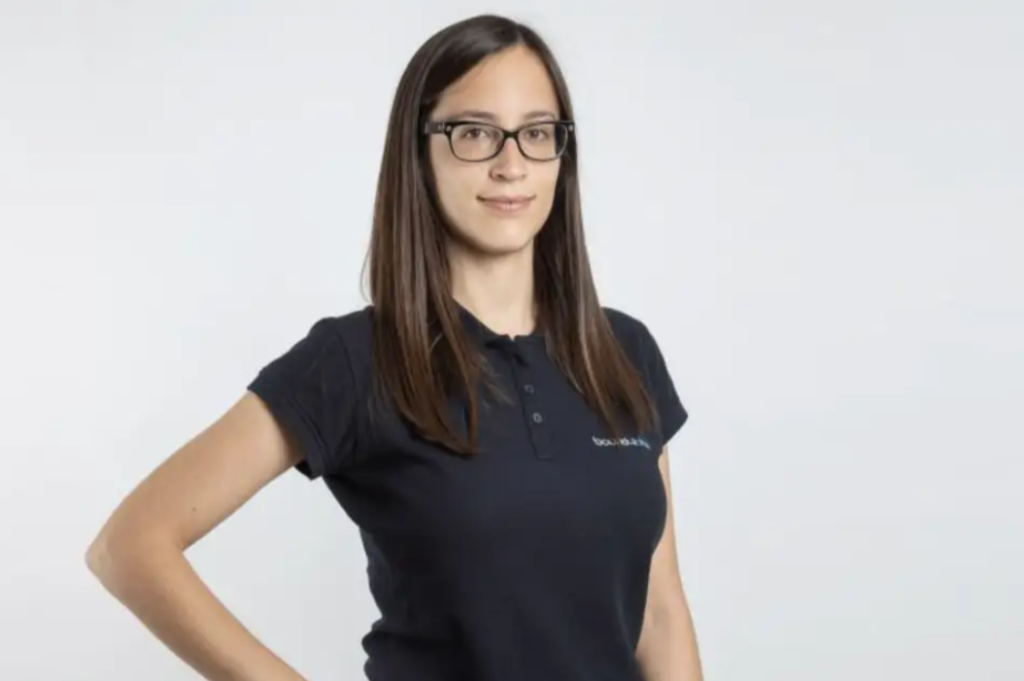Cristina Aleixendri is the COO of a multi-million dollar environmental startup she co-founded at the age of 23. bound4blue
- At 23, Cristina Aleixendri co-founded a startup reducing cargo ship fuel consumption and emissions.
- The company, bound4blue, had a revenue of $3.6 million in 2020, 25 times greater than 2019.
- However, Aleixendri has faced a great deal of misogyny both in her education and her career.
“When I was in college,” Cristina Aleixendri said, “I remember a professor telling me it was to be expected that I couldn’t solve a problem because I was a woman. He also told me to let him know if I ever designed a plan because he wouldn’t want to fly in it.”
If Aleixendri had taken his words seriously, it’s safe to say she wouldn’t be where she is now: the COO of a multi-million dollar environmental startup she co-founded at the age of 23.
The Spanish native from Catalonia has worked in various tech firms, authored several investigations, developed three sailing patents, and has featured on the Forbes 30 Under 30 list for manufacturing and industry in Europe.
Now 29, Aleixendri received the European Institute of Innovation and Technology (EIT) Award last year. The prize of more than $60,000 recognizes inspiring women entrepreneurs and leaders who are driving innovation.
Aleixendri is the co-founder and chief operating officer of bound4blue, a start-up that applies aviation technology to the shipping industry by means of a folding wing sail that generates significant fuel savings.
In an interview with Business Insider España, she explained how the company was created, what it’s like to be a woman in a male-dominated field, and the ups and downs she’s faced so far.

From three people dreaming to a three-million turnover
“We decided to create the company because we saw there was an economic and environmental problem with maritime transport,” Aleixendri said. “Having been trained as aeronautical engineers, we had the necessary tools and knowledge to solve it.”
She and her team initially conceptualized a fleet of boats using seawater electrolysis to generate renewable energy and set to work designing a rigid sail system similar to an airplane wing rather than a conventional sail.
This ultimately became the solution, as the sail could be used as a complementary propulsion system to reduce fuel consumption and CO2 emissions from cargo ships — particularly important at a time when speed limits are being considered to reduce emissions.
“Basically, what we are doing is going back to the beginning and using the wind again, just as the Phoenicians did,” Aleixendri said. “This co-powers ships efficiently and meets the needs of the sector.”
In 2014, they formally created the project under the name bound4blue. Its mission is twofold: to reduce fuel consumption in the maritime sector and to generate energy that is entirely renewable and lower cost than current methods.
According to the company, the 85,000 trading ships in use worldwide consume between four and 110 tons of fuel every day, depending on their type and size. The supplementary sail provided by bound4blue can save them 20% fuel, leading to a payback quicker than three years.
Between 2019 and 2020 the company’s revenue became 25 times larger, going from $145,000 to $3.6 million. It also grew in numbers, going from 15 direct and 30 indirect employees to 50 indirect employees.
“We expect to install our technology on 180 ships over the next five years, leading to 540,000 fewer tonnes of CO2 being emitted every year,” Aleixendri added.

Growing the company hasn’t been a walk in the park
Getting to the company to where it is today hasn’t been “a walk in the park,” Aleixendri pointed out.
The main challenges have been developing the technology, getting funding, and reaching the market.
Only some of the initial designs she and her team developed went on to be built to scale and the most complicated step was going from a scaled prototype to a full-scale system.
However, funding is required for a project to be able to demonstrate its potential and Aleixendri said these funding opportunities are hard to come by in the maritime sector — all the more reason to celebrate the company raising $7 million in public and private investment.
“There is a psychological barrier to a potential solution in that it’s so visible and will be associated with high-profile failure if things don’t go as planned,” Aleixendri added.
For her, the awards, the funding, and the press adulation is just the tip of the iceberg, representing less than 5% of the hard work the team has put into the project.
Being an entrepreneur for Aleixendri means “a multitude of challenges await you every day,” including a fear of failure and imposter syndrome.
However, she wouldn’t trade it for the world.
“It definitely hasn’t been easy, and we don’t expect it to be either, but all this effort is always worth it,” she said.

Being a woman in a male-dominated field
Aleixendri has always worked in sectors where women are underrepresented, including in the maritime sector. Slowly but surely, improvements are being seen — from the first female CEO of Singapore’s Maritime and Port Authority to crew members on yachts tackling issues pertaining to diversity.
“At university, like some of my classmates, I suffered due to my professors’ misogyny. And at work, I have had to listen to everything: from people not believing I’m an engineer because I’m a woman, to a man telling me that women are only good for being mothers, or an investor asking to talk to my partner because he is a man,” Aleixendri said.
She added that women still don’t have the same opportunities as men, and are forced to prove themselves “much more than any man is.”
Aleixendri, however, believes education could change this.
“Empower girls from an early age, teach them through examples that they can become whatever they want,” she said. “They can set goals as ambitious as they want because the limit to their dreams should not be their gender.”
Article Credit: businessinsider
